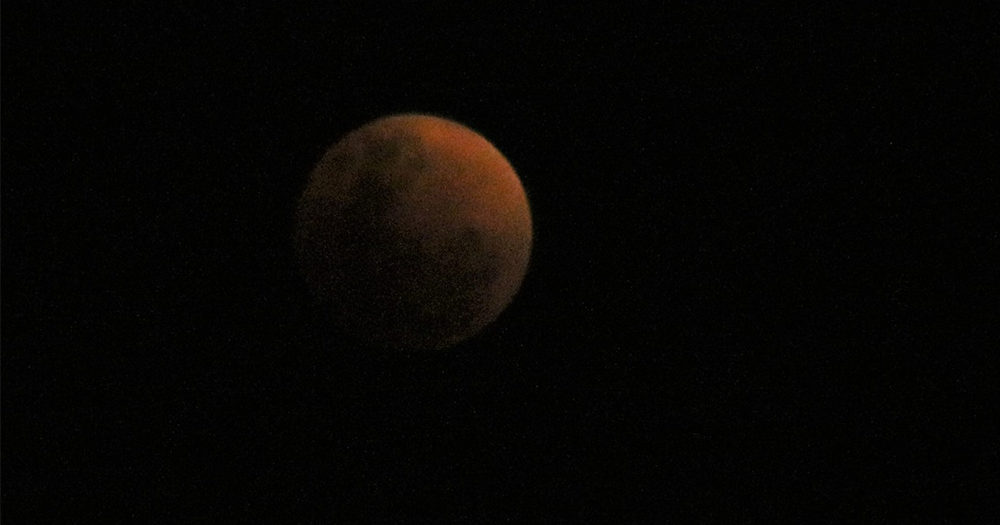Follow us on Telegram for the latest updates: https://t.me/mothershipsg
Moongazers rejoice: you may be able to spot a rare blood moon in Singapore on Nov. 8, 2022 -- with a bit of luck.
"Challenging" to spot
According to a Facebook post by the Science Centre Observatory (SCOB), the appearance of the rare blood moon is accompanied by a total lunar eclipse.
But the eclipse will start at 4:02pm and reach full eclipse at 6:16pm, rendering the event not visible as the moon will only rise later that evening at 6:46pm, SCOB said.By that time, the rising moon will appear dark, and will only reach an appreciable altitude at 9pm.
As a result, it will be "challenging" to observe the rare phenomenon, said SCOB.
The full eclipse is predicted to end at 7:41pm, while the partial eclipse will end at 8:49pm and the penumbral eclipse at 9:56pm.
Viewers who do manage to catch the eclipse will likely be treated to a view of a red-coloured moon, "due to the eclipse and our atmospheric conditions", according to SCOB.
The next two total lunar eclipses will happen in 2025, reported CNA.
No viewing, but moongazers can try their luck
The Science Centre Singapore will not be organising an event to observe this lunar eclipse.
However, moongazers can try their luck by heading to a place with a clear view of the Eastern horizon from 7pm, SCOB said.
Binoculars are not necessary although viewers may wish to bring along a pair.
Rare phenomenon
A blood moon is the result of a total lunar eclipse.
During this time, Earth is positioned between the sun and the full moon. This blocks the moon from receiving light from the sun.
As a result, the moon instead reflects light from Earth — giving it its distinctive coppery colour.
According to NASA, approximately two to four lunar eclipses happen per year, with each one visible over half the Earth.
But as the moon slowly drifts away from the planet — at a rate of roughly 4cm a year — lunar eclipses may one day become a thing of the past.
Related stories
Top image from SCOB/Facebook.
If you like what you read, follow us on Facebook, Instagram, Twitter and Telegram to get the latest updates.
